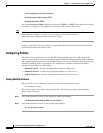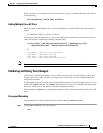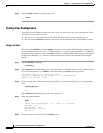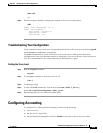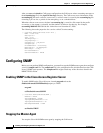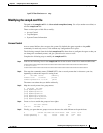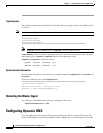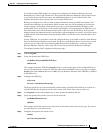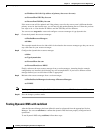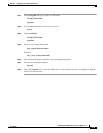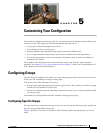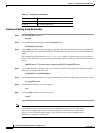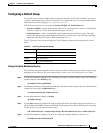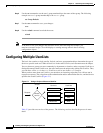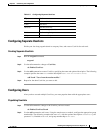
4-18
Installing and Configuring Cisco Access Registrar, 4.2
OL-17221-02
Chapter 4 Configuring Cisco Access Registrar 4.2
Configuring Dynamic DNS
set IPAddress 10.10.10.1 (ip address of primary dns server for zone)
set ForwardZoneTSIGKey foo.com
set ReverseZoneTSIGKey foo.com
If the reverse zone will be updated and if the primary server for the reverse zone is different than the
primary server for the forward zone, you will need to add another Remote Server. Follow the previous
two steps to do so. Note that the IP Address and the TSIG Key will be different.
You can now use aregcmd to create and configure a resource manager of type dynamic-dns.
Step 7 Create the dynamic-dns resource manager:
cd /Radius/ResourceManagers
add ddns
This example named the service ddns which is the related to the resource manager type but you can use
any valid name for your resource manager.
Step 8 Configure the dynamic-dns resource manager.
cd ddns
set Type dynamic-dns
set ForwardZone foo.com
set ForwardZoneServer DDNS
Finally, reference the new resource manager from a session manager. Assuming that the example
configuration was installed, the following step will accomplish this. If you have a different session
manager defined you can add it there if that is appropriate.
Step 9 Reference the resource manager from a session manager:
cd /Radius/SessionManagers/session-mgr-1/ResourceManagers
set 5 DDNS
Note The Property AllowAccountingStartToCreateSession must be set to TRUE for dynamic DNS to work.
Step 10 Save the changes you have made.
Testing Dynamic DNS with radclient
After the Resource Manager has been defined it must be referenced from the appropriate Session
Manager. You can use radclient to confirm that dynamic DNS has been properly configured and is
operational.
To test Dynamic DNS using radclient, follow these steps:



